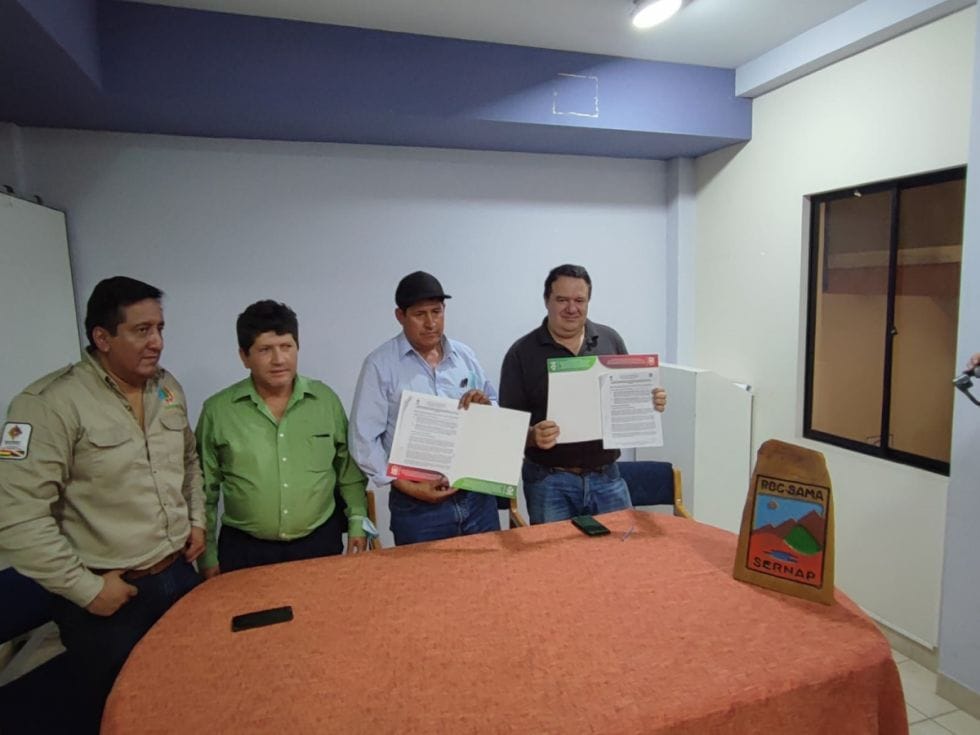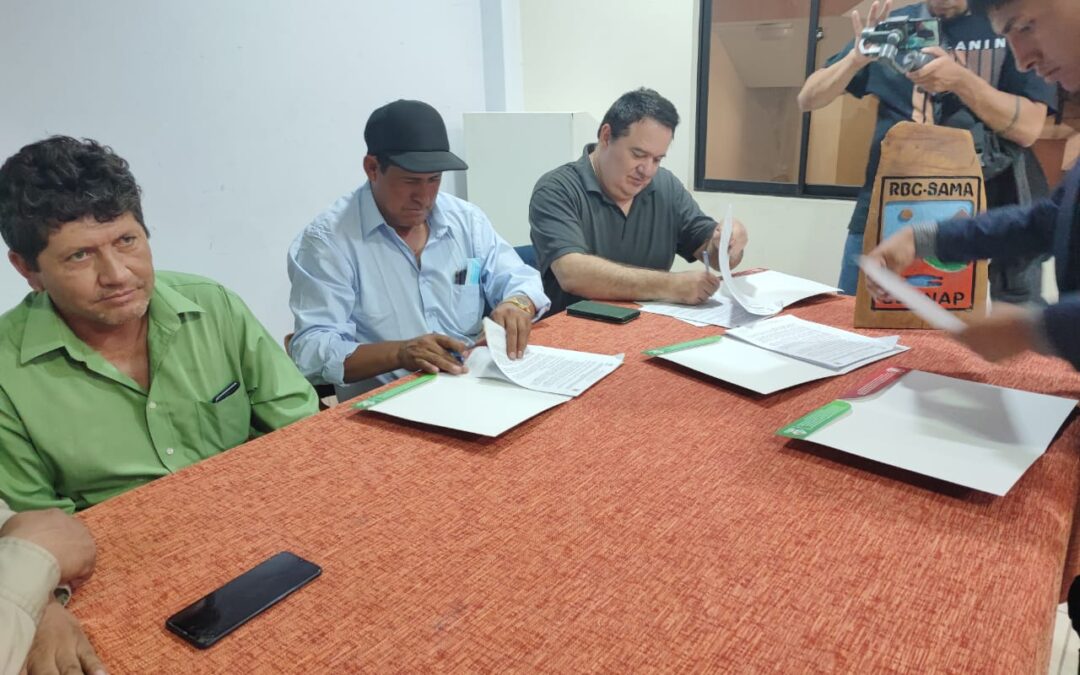
El lunes 30 de enero, el director ejecutivo de Protección del Medio Ambiente Tarija (Prometa), Rodrigo Ayala, y el director ejecutivo del Servicio Nacional de Áreas Protegidas (Sernap), Teodoro Mamani Ibarra, firmaron un convenio de cooperación interinstitucional que tiene por objetivo apoyar la gestión de la Reserva Biológica Cordillera de Sama, además del desarrollo local y el aprovechamiento sostenible de los recursos naturales en comunidades de la zona.
La firma del convenio se llevó a cabo en el marco del 32° aniversario de la Reserva Biológica Cordillera de Sama y se realizó en las oficinas de Prometa. En el acto, además de los directores ejecutivos, estuvieron presentes el director de la Reserva de Sama, Marcelo Ruiz y el presidente del Comité de Gestión de la misma Reserva, Renán Donaire.
En la firma del convenio, Ayala destacó el trabajo que vienen desempeñando Sernap, Prometa, y la Fundación para el Desarrollo del Sistema Nacional de Áreas Protegidas (FUNDESNAP) mucho antes de la firma, y auguró mucho más trabajo conjunto. De la misma manera, agradeció al director del Sernap su confianza y predisposición.
Entretanto, Mamani dio gracias a Prometa por su labor, reflexionó sobre la importancia del trabajo conjunto y rememoró algunos logros de su institución que día a día logra mayor sostenibilidad.
Sobre el tema, el director de la Reserva de Sama destacó el apoyo de FUNDESNAP, Prometa y citó la constitución de la Plataforma de la Reserva como uno de los mejores resultados.
Sernap y Prometa, un trabajo conjunto
Sernap y Prometa junto a FUNDESNAP, vienen trabajando en proyectos relacionados a la Reserva Biológica Cordillera de Sama. Entre uno de sus logros está el haber constituido la plataforma de Sama, que consiste en la suma de esfuerzos de varias instituciones, nacionales y tarijeñas, que preocupadas por la situación de la Reserva tienen como objetivo común aunar esfuerzos para mejorar su protección. Para ello aportan en dinero, especie o servicios.
“Algunas aportarán con dinero, otras con insumos, trabajo y todo lo que se pueda. Por ejemplo, una importante curtiembre nos está dando botines para nuestros bomberos”, explicó el director de la Reserva de Sama.

La importancia de la Reserva
La Reserva Biológica Cordillera de Sama, creada en 1991 con una superficie de 108.500 hectáreas, abarca parte del territorio de seis municipios: Yunchará, El Puente, Tarija, Uriondo, Padcaya y San Lorenzo. Presenta seis cuencas de gran importancia para la región, una de ellas la cuenca del Guadalquivir, que es la que provee de agua a la población de Tarija y comunidades de su área de influencia. Esta “fuente de agua para el Valle Central de Tarija” es considerada uno de los objetos de conservación del área protegida.
Pero, la Reserva también es sitio Ramsar -uno de los humedales más importantes de Bolivia- ya que alberga una gran diversidad de flora (254 especies) y fauna (más de 180 especies) de altura.
En un área contigua a la Reserva de Sama (sector oeste) se encuentra el área de recarga acuífera más importante del Valle Central de Tarija en la zona de Tolomosa integrada por dos cuencas que confluyen en el río Guadalquivir: las cuencas del río Tolomosa y de La Vitoria, la primera es fuente de agua para riego y la producción de electricidad. La segunda provee el 33% del agua potable a la ciudad de Tarija y en época de lluvias cubre hasta un 70% de la demanda de agua.

